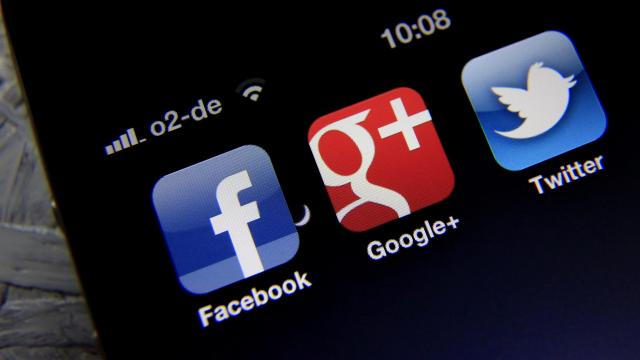2017 was the year public sentiment began to turn against massive tech conglomerates like Facebook and Google. But nowhere in the West has the backlash been bigger than Germany, which last year passed a sweeping anti-hate speech law requiring websites to promptly investigate reports of posts illegal under German law and delete them. On January 1, 2018, the grace period before that law would begin being enforced by authorities expired.
Per broadcaster Deutsche Welle, companies affected by the Network Enforcement Act (NetzDG) include “Facebook, Twitter, Google, YouTube, Snapchat, and Instagram,” though “professional networks like LinkedIn and Xing are expressly excluded, as are messaging services like WhatsApp.” The BBC noted additional sites like Vimeo and Flickr could potentially be targeted by authorities under the law.
Germany has strict laws prohibiting content like neo-Nazi propaganda, swastikas, and Holocaust denial, and NetzDG will require the sites in question to investigate user reports of such postings, delete most within 24 hours, and act on more complicated cases within a week. The German parliament originally passed the law in late June 2017 and it went into force in October, but legislators gave sites three months to put together internal systems to remove the banned content — Facebook’s compliance efforts entailed the hiring of several hundred staff, according to the BBC.
Per Deutsche Welle, users can report directly to German federal authorities, though the threat of non-compliance fines of up to $US57 million (50 million euros) has apparently spurred companies into action:
Google has also created an online form to report content, while Twitter has added an option to its existing report function that specifies “comes under the NetzDG.” Facebook has set up a more complex system, independent of its reporting options, which requires users to find a special page, take a screenshot of the offending post, and choose one of 20 offenses that the post is allegedly committing. People do not have to be registered users of the network to report content.
Critics of the law have included a medley of groups including lobbyists for internet companies, free-speech activists, Reporters Without Borders, and far-right party Alternative for Germany (notable in part due to its rapid growth and flirtation with fascism). They have variously identified issues like the risk of censorship, arbitrary enforcement, and the chance it could be abused by a future government less inclined to let German citizens speak their minds.
“It is certainly possible that the head of state could take direct influence,” lawyer Simon Assion told Süddeutsche Zeitung, according to Deutsche Welle. “The Justice Ministry has access to how social networks implement their deleting mechanisms.”
Twitter, Google, and Facebook, however, may have encouraged its passage by promising to voluntarily set up a similar system in 2015 — and then largely failing to comply with the 24-hour deadlines sought by German authorities. According to the New York Times, a yearlong study found that while the services did eventually delete “nearly all illegal hate speech,” only YouTube was doing so in a timely fashion. All three companies have historically taken a laissez-faire approach to policing use of their platforms by bigots, though their rush to comply with the German law suggests they had the capability to do so.
German authorities have also tackled the problem from the other end, launching raids of dozens of homes where alleged social media hatemongers lived earlier this year. European Union authorities have also taken a strong stance against the proliferation of online hate speech and warned EU-wide regulations could be one solution if tech companies don’t enact and enforce stricter policies.
